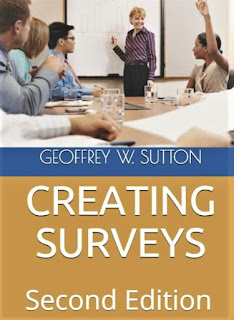The psychological study of the self includes a wide range of concepts. This post lists the self-terms in alphabetical order.
I suggest
starting with the SCOPES
Model of Human Functioning in which the self is the central
organizing concept.
Then, read
about Self-Concept
and Self-Identity
Click on
the terms to see more information.
Note, in
psychology, terms using the word self and another word are always hyphenated.
Learn about Creating Surveys on AMAZON or GOOGLE
Find tests
about the Self in this Psychology Test List.
Please check out my website www.suttong.com
and see my books on AMAZON or GOOGLE
STORE
Also,
consider connecting with me on FACEBOOK Geoff W. Sutton
TWITTER @Geoff.W.Sutton
You can read many published articles at no charge:
Academia Geoff W Sutton ResearchGate
Geoffrey
W Sutton



